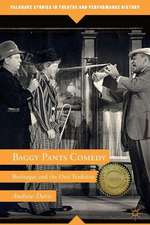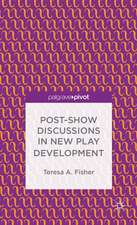Gustav Mahler: A Life in Crisis
Autor Stuart Federen Limba Engleză Paperback – 31 aug 2010
Crises in the life of Gustav Mahler inspired some of his greatest works—but eventually led to an early death
The life of the brilliant composer and conductor Gustav Mahler was punctuated by crisis. His parents both died in 1889, leaving him the reluctant head of a household of siblings. He himself endured a nearly fatal medical ordeal in 1901. A beloved daughter died in 1907 and that same year, under pressure, Mahler resigned from the directorship of the Vienna Opera. In each case Mahler more than mastered the trauma; he triumphed in the creation of new major musical works.
The final crisis of Mahler’s career occurred in 1910, when he learned that his wife, Alma, was having an affair with the architect Walter Gropius. The revelation precipitated a breakdown while Mahler was working on his Tenth Symphony. The anguished, suicidal notes Mahler scrawled across the manuscript of the unfinished symphony revealed his troubled state. A four-hour consultation with Sigmund Freud in Leiden, Holland, restored the composer’s equilibrium. Although Mahler left little record of what transpired in Leiden, Stuart Feder has reconstructed the encounter on the basis of surviving evidence. The cumulative stresses of the crises in Mahler’s life, in particular Alma’s betrayal, left him physically and emotionally vulnerable. He became ill and died soon after in 1911.
At once a sophisticated consideration of Mahler’s work and a psychologically acute portrait of the life events that shaped it, this book extends our thinking about one of the great masters of modern music.
The life of the brilliant composer and conductor Gustav Mahler was punctuated by crisis. His parents both died in 1889, leaving him the reluctant head of a household of siblings. He himself endured a nearly fatal medical ordeal in 1901. A beloved daughter died in 1907 and that same year, under pressure, Mahler resigned from the directorship of the Vienna Opera. In each case Mahler more than mastered the trauma; he triumphed in the creation of new major musical works.
The final crisis of Mahler’s career occurred in 1910, when he learned that his wife, Alma, was having an affair with the architect Walter Gropius. The revelation precipitated a breakdown while Mahler was working on his Tenth Symphony. The anguished, suicidal notes Mahler scrawled across the manuscript of the unfinished symphony revealed his troubled state. A four-hour consultation with Sigmund Freud in Leiden, Holland, restored the composer’s equilibrium. Although Mahler left little record of what transpired in Leiden, Stuart Feder has reconstructed the encounter on the basis of surviving evidence. The cumulative stresses of the crises in Mahler’s life, in particular Alma’s betrayal, left him physically and emotionally vulnerable. He became ill and died soon after in 1911.
At once a sophisticated consideration of Mahler’s work and a psychologically acute portrait of the life events that shaped it, this book extends our thinking about one of the great masters of modern music.
Preț: 381.97 lei
Nou
Puncte Express: 573
Preț estimativ în valută:
73.09€ • 76.47$ • 60.72£
73.09€ • 76.47$ • 60.72£
Carte tipărită la comandă
Livrare economică 02-16 aprilie
Preluare comenzi: 021 569.72.76
Specificații
ISBN-13: 9780300170344
ISBN-10: 0300170343
Pagini: 364
Ilustrații: 1, black & white illustrations
Dimensiuni: 152 x 229 x 22 mm
Greutate: 0.53 kg
Editura: Yale University Press
Colecția Yale University Press
ISBN-10: 0300170343
Pagini: 364
Ilustrații: 1, black & white illustrations
Dimensiuni: 152 x 229 x 22 mm
Greutate: 0.53 kg
Editura: Yale University Press
Colecția Yale University Press
Recenzii
"Feder's book is a superb example of biography as a psychological prosopography. His weaving of personal, musical, and psychological histories together into a thematic whole make for a fascinating read. . . . As a psychological analysis of Mahler—as a person and composer—this work is first rate."—J. Trygve Has-Ellison, Musicians and the Modern Era
"A fascinating account of the composer from a psychological perspective. . . . Stuart Feder has supplied a fine account of what is known and how it could be applied in diagnostic terms to Mahler throughout his life. It is in straightforward, non-sensational language that often brings clarity and insight to particularly complex areas."—Michael Shmith, Arts & Medicine
"Feder presents details scarcely noticed by other biographers who do not have [his] unique combination of musical and psychological expertise; they add richness, warmth, and humanity to this biography."—American Record Guide
“Throughout this well-illustrated, carefully indexed, readable book, Feder shows how a knowledge of Mahler’s mental state is useful in understanding his music. . . . Essential.”—Choice
"Professor Feder’s informed analysis of key moments in the composer’s doomed progress makes for a fascinating read."—Jeremy Nicholas, Classic FM
"I found his treatment of Mahler and Alma nuanced and compassionate; the Freudian analysis at no time seemed to contort the facts to fit the theory, and indeed, Feder's interpretation of dreams makes for convincing reading. . . . Feder's project truly shines . . . in its focus on intimate relationships."—Erika Quinn, H-Net Reviews
"This is one of the most sophisticated and scientific sets of information available to us about the mind of a great composer who was a source of inspiration for generations to come."—Borna Bonakdarpour, Quarterly Journal of the Chicago Mahlreites
"Of all the psychoanalysts who have written about Gustav Mahler, Stuart Feder is to my mind the most lucid and the most convincing. It is impossible today to write about Mahler without taking his earlier writings into account. Thus I eagerly await his new book about Mahler’s last and crucial moments, when the famous meeting with Sigmund Freud took place.”—Henry-Louis de La Grange, author of Gustav Mahler (four-volume biography from OUP)
“Feder writes . . . with a sensitivity and a depth that is remarkable in such a short book. . . . This is a book that allows Mahler to be explored, not in one way but in many ways. As a basic biography, written by one who could not have known his subject personally, it is excellent. As a book to be read by someone interested in a wonderful story, if a tragic one, it is both accessible and enjoyable. As a music history volume, as an insight into the psychiatric world, as so many different things at once, it is an intriguing, cherishable tome. . . . I am grateful to Stuart Feder and his multi-faceted, professional look into the tortured, anguished soul of a master-musician.”—J. Peter Bergman, The Berskshire Eagle (Pittsfield, Mass.)
"Once again, Stuart Feder has triumphed in bringing together his two areas of expertise—music and psychology. He has done for the field of Mahler studies what he did in the case of Charles Ives: he has charted a new path in our understanding of the man and his music."—Leon Botstein, Bard College
“A first-rate book by a writer who is eminently well equipped to handle its double nature. Gustav Mahler: A Life in Crisis will appeal to both music lovers and those interested in psychoanalysis.”—Peter Gay, author of My German Question
"No one but Feder has sorted out all that can be known about what went on during Mahler’s famous session with Freud. This is an important book by an author well qualified to write it."—Stephen E. Hefling, Case Western Reserve University
"A fascinating account of the composer from a psychological perspective. . . . Stuart Feder has supplied a fine account of what is known and how it could be applied in diagnostic terms to Mahler throughout his life. It is in straightforward, non-sensational language that often brings clarity and insight to particularly complex areas."—Michael Shmith, Arts & Medicine
"Feder presents details scarcely noticed by other biographers who do not have [his] unique combination of musical and psychological expertise; they add richness, warmth, and humanity to this biography."—American Record Guide
“Throughout this well-illustrated, carefully indexed, readable book, Feder shows how a knowledge of Mahler’s mental state is useful in understanding his music. . . . Essential.”—Choice
"Professor Feder’s informed analysis of key moments in the composer’s doomed progress makes for a fascinating read."—Jeremy Nicholas, Classic FM
"I found his treatment of Mahler and Alma nuanced and compassionate; the Freudian analysis at no time seemed to contort the facts to fit the theory, and indeed, Feder's interpretation of dreams makes for convincing reading. . . . Feder's project truly shines . . . in its focus on intimate relationships."—Erika Quinn, H-Net Reviews
"This is one of the most sophisticated and scientific sets of information available to us about the mind of a great composer who was a source of inspiration for generations to come."—Borna Bonakdarpour, Quarterly Journal of the Chicago Mahlreites
"Of all the psychoanalysts who have written about Gustav Mahler, Stuart Feder is to my mind the most lucid and the most convincing. It is impossible today to write about Mahler without taking his earlier writings into account. Thus I eagerly await his new book about Mahler’s last and crucial moments, when the famous meeting with Sigmund Freud took place.”—Henry-Louis de La Grange, author of Gustav Mahler (four-volume biography from OUP)
“Feder writes . . . with a sensitivity and a depth that is remarkable in such a short book. . . . This is a book that allows Mahler to be explored, not in one way but in many ways. As a basic biography, written by one who could not have known his subject personally, it is excellent. As a book to be read by someone interested in a wonderful story, if a tragic one, it is both accessible and enjoyable. As a music history volume, as an insight into the psychiatric world, as so many different things at once, it is an intriguing, cherishable tome. . . . I am grateful to Stuart Feder and his multi-faceted, professional look into the tortured, anguished soul of a master-musician.”—J. Peter Bergman, The Berskshire Eagle (Pittsfield, Mass.)
"Once again, Stuart Feder has triumphed in bringing together his two areas of expertise—music and psychology. He has done for the field of Mahler studies what he did in the case of Charles Ives: he has charted a new path in our understanding of the man and his music."—Leon Botstein, Bard College
“A first-rate book by a writer who is eminently well equipped to handle its double nature. Gustav Mahler: A Life in Crisis will appeal to both music lovers and those interested in psychoanalysis.”—Peter Gay, author of My German Question
"No one but Feder has sorted out all that can be known about what went on during Mahler’s famous session with Freud. This is an important book by an author well qualified to write it."—Stephen E. Hefling, Case Western Reserve University


























